Realizing Children’s Rights in Turkey
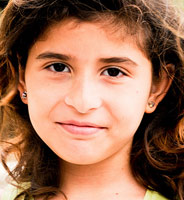
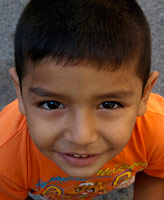
Rich in natural as well as human resources, Turkey has a dynamic economy. However, not all of the population is able to benefit from it. In fact, poverty still poses a serious problem for a segment of the population. Certain children are unable to enjoy all of the rights proclaimed by the International Convention of Children’s Rights.

Children’s Rights Index: 7,96 /10
Orange level: Noticeable problems
Population: 83.5 million
Pop. ages 0-14: 23.4 %
Life expectancy: 74 years
Under-5 mortality rate: 14,2 ‰
Turkey at a Glance
Turkey is a country straddling eastern Europe and western Asia. The country is bounded on the north by the Black Sea, on the east by Azerbaijan and Iran, on the southeast by Iraq and Syria, and on the southwest and west by the Mediterranean Sea and the Aegean Sea. Its population, currently at approximately 83.5 million, is continuously increasing at a fast pace. The young population, between the ages of 0 to 24, accounts for 39.45 percent of the total population in Turkey.
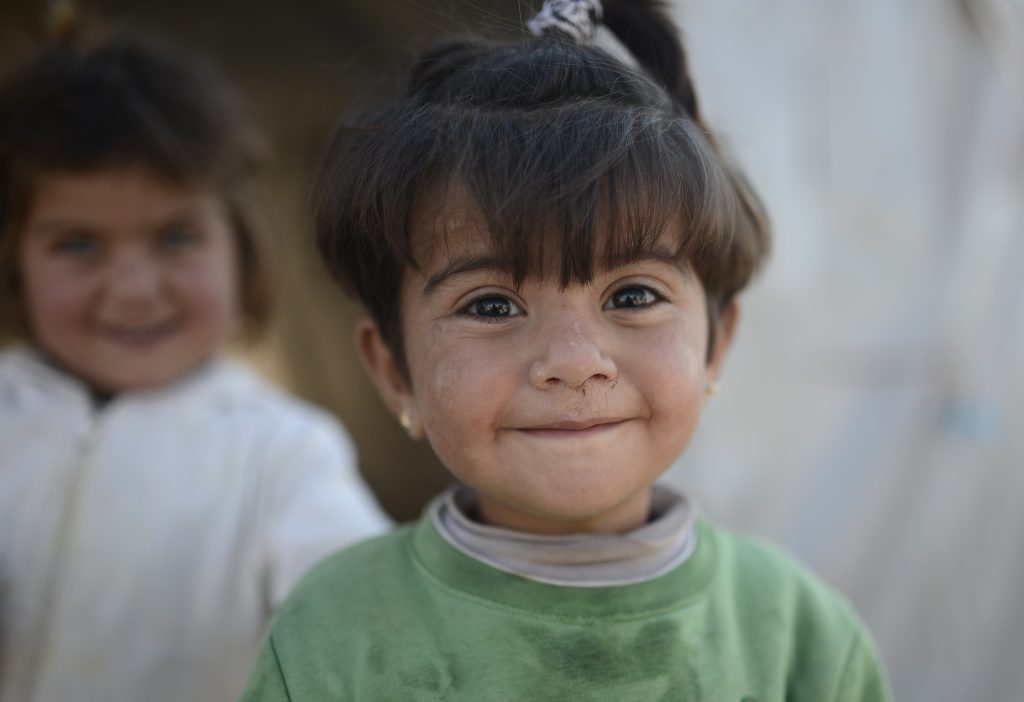
Formed after the Turkish Independence War, Turkey adopted a parliamentary democracy system with a free market economy. It has been prominent as a center of commerce for an extended period because of its land connecting the three continents and seas surrounding it. However, not all of the population can benefit from such a dynamic economy. Still today, poverty and the problems it causes pose a significant threat to segments of the population. Turkey faces problems such as rapid migration and urbanization, unemployment, domestic violence, and a lack of the implementation of some legal frameworks.
These all have had bearing on the children of Turkey. As a result, certain children throughout the country are unable to enjoy all of the rights proclaimed by the International Convention on Children’s Rights. There have been significant improvements regarding child rights and opportunities provided to them; however, despite everything, the full realization of Children’s Rights is still going to demand time and effort.
Status of Children’s Rights
Children represent a relatively average percentage of the Turkish population, with 23.4 percent of the population between the ages of 0 and 14 in 2018. The population percentage of children in Turkey has significantly decreased mainly indicating a decrease in the rate of births.
Children under 17 constituted 48.5 percent of the total population in 1970 and a decrease of 25.5 percent has been seen in approximately 50 years. The highest number of children is seen to accumulate in more rural parts of Turkey. However, children living in rural areas often have limited access to fundamental needs such as nutrition, access to healthcare, education, and protection.
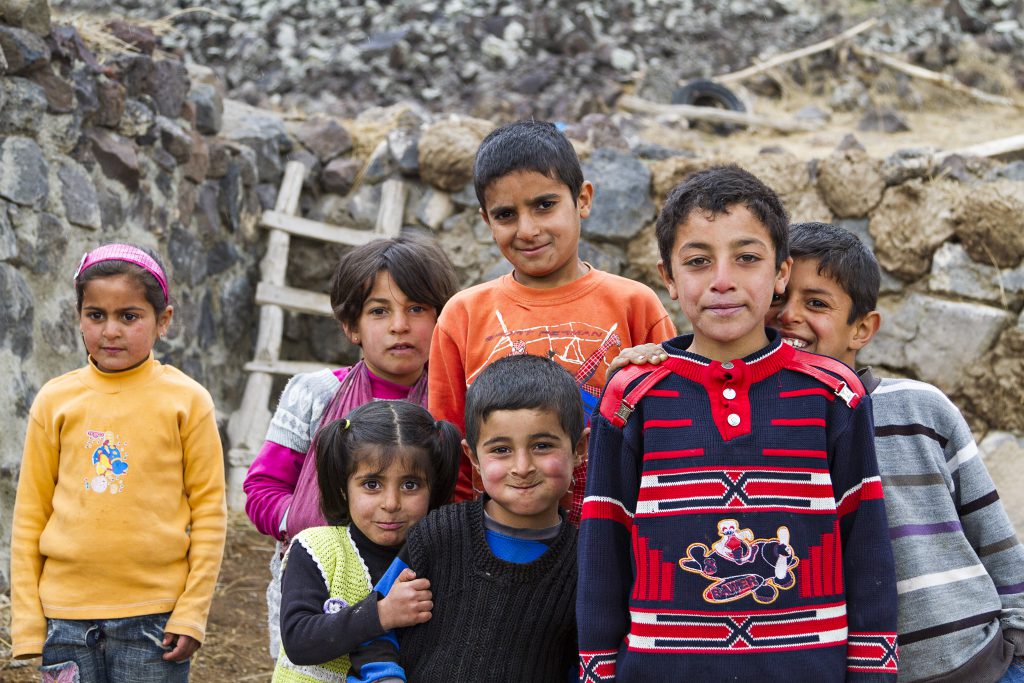
Turkey ratified the Convention on the Rights of the Child in 1994. Since then, there have been several developments concerning children’s rights through both legal and administrative changes in line with the conditions for EU accession. At the start of the 21st century, in order to meet the Copenhagen political criteria for EU accession, the Turkish Parliament passed extensive legal reforms to ameliorate the human rights protection system which highly benefited children’s rights and was considered sufficient to fulfill the criteria. Subsequently, child rights drew more attention and the focus on issues such as street children, early marriages, and child labor increased.
If managed correctly, the government, civil society, academia, international organizations, and the private sector have the potential that can give to child rights and youth empowerment. Nevertheless, public awareness of the Turkish people regarding child rights has been increasing as a result of initiatives made by many non-government and international organizations, some by the government, and most importantly by the children themselves.
Currently, child rights are mainstreamed into school curriculums and many are receiving child rights training to enhance the conditions of children in Turkey. It is clear that promoting children’s rights is becoming a priority; however, not all children are able to fully enjoy them. Realizing the effects of improving child rights, it is imperative that the rights of newborns and children are protected.
One example of this is the non-governmental organization is Koruncuk, Turkey’s Vulnerable Children (Koruncuk) Foundation which engages in activities to minimize the negative social impact that all children at risk may face. For this purpose, it carries out preventive, protective and remedial activities to conserve and enhance child rights in Turkey.
Child-Sensitive Social Protection
Social protection is essential for preventing and reducing poverty for children and families, addressing inequalities, and for realizing children’s rights. In addition, it is essential that social protection programs respond to children’s vulnerabilities by optimizing positive effects on children and minimizing potential adverse consequences. Social protection, especially child-sensitive social protection, if put into action correctly, it has the opportunity to address chronic poverty, social exclusion, and external shocks which can irreversibly affect children.
Awareness and focus on social protection in Turkey are increasing: the social protection expenditures rose by 13.7 percent year-on-year in 2017, according to TurkStat’s figures, reaching a total of $104.8 billion. Although expenditure on social protection for children and families has expanded, Turkey’s spending of its GDP on social protection for children and families is still low compared to other OECD countries. ,
Turkey is home to the largest refugee population in the world: over 3.1 million displaced Syrians live under temporary protection, almost half of whom are children. So it is in great need that the children are cared for. Currently, there are CCTE programs for refugee families by the Ministry of Family, Labour and Social Services which aim to alleviate the financial difficulties which constitute one of the main barriers to the participation of refugee children in education.
There is also help, to some degree, regarding working families and their children to take care of their needs and especially to aid them with their health expenses. Additionally, there is a number of increasing non-governmental organizations that help enhance child-sensitive social protection. Beneficiaries are, to a large extent, determined at the discretion of Social Assistance and Cooperation Foundations.
Despite these efforts, many children and families continue to face barriers to accessing basic social services. Although some forms and policies of social protection in Turkey are child-sensitive, it is still not fully adequate for the children’s needs. As such, it is important that policies, legislation, and regulations effectively consider the viewpoint of children, youth, and their caregivers- so that children’s rights are met.
Addressing the Needs of Children
Right to Health
According to data collected, infant mortality was almost 9 children per 1,000 live births, with regional disparities existing. The number of mothers receiving prenatal care and giving birth in health facilities reached 99.7 percent and 98.0 percent respectively, which was a great improvement considering that there were many births being performed without professional supervision before, resulting in a higher rate and risk of infant mortality. Additionally, immunizations for children are given by the government free of charge which is a significant benefit for preventing future diseases.
However, there are countless children who have conditions that can be treated if detected early by regular checkups such as respiratory or circulatory problems, but due to various factors such as the stigma around health care, culture, and lack of education, these needs are not being fulfilled. Also, better medical equipment is beneficial and the overall competence of health personnel improve can help more patients’ needs to be met more effectively. The full enjoyment of Turkish children’s right to health is a concern and should be addressed effectively.
Right to Education
Turkey’s education is improving; however, it is not excelling yet. In 2012, it was considered to make preschool mandatory, however, this obligation was not adopted. There was another reform considered in the school systems by the Ministry of National Education which was to increase the mandatory education time to 12 years instead of 8 years, making the age of enrolment in primary school 5.5 years. This new education system was initiated in the school years 2012-2013 and has been continuing since.
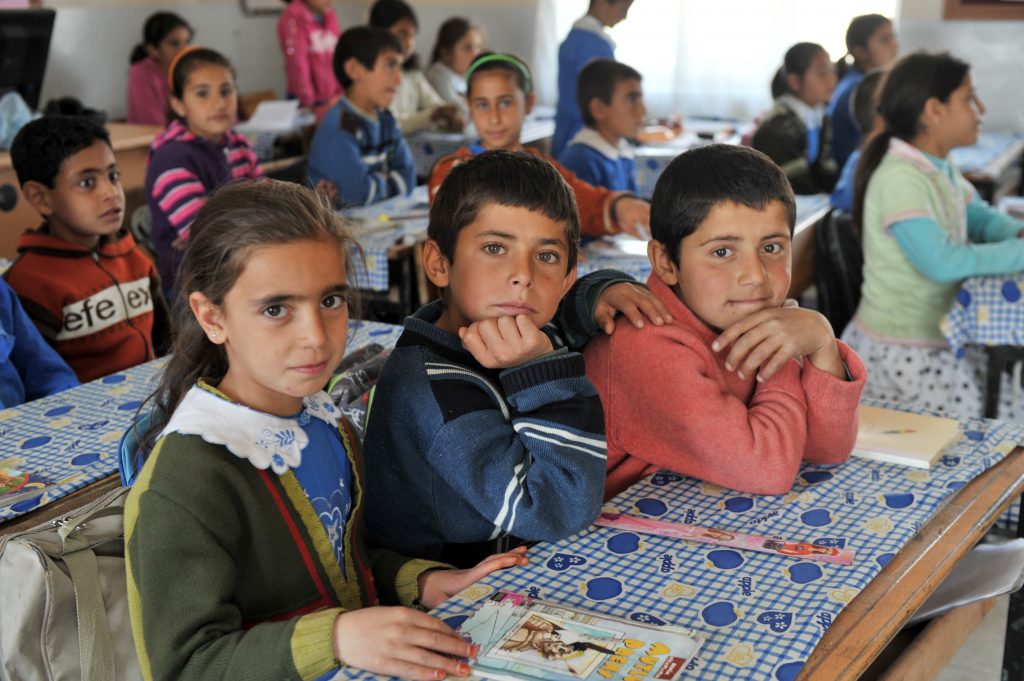
Enrolment in primary and lower secondary education is over 98 percent at both school levels. While in some provinces (particularly in the East) adolescent girls are less likely to go to school than boys, the trend is inverted in other provinces. The government allocates approximately 16.2 percent of its national budget to education, which is not insufficient, however in need of amplification considering the urgent need. Most of this budget is allocated for personnel expenditures which fall short considering the lack of adequate professionals in this field. The difficulties of public education are present on some occasions: economic constraints, dilapidated buildings, lack of equipment, etc.
In Turkey, there is a great number of Syrian refugees, most of whom are children and it is crucial for them to gain access to education even if they are on unideal terms. The number of Syrian refugee children included in formal education was 645,140 as of December 2018, representing an increase of 5.7 percent by comparison with the 2017/2018 school year and 31 percent with the 2016/2017 school year. Despite this progress, these numbers are still not sufficient to ensure all children get the adequate care and education that they need.
Additionally, there are several non-governmental organizations that contribute to enhancing the education children get in Turkey, such as TEGV, Educational Volunteers Foundation of Turkey, and TOÇEV, Tüvana Foundation for the Education of Children Willing to Learn.
Right to Identity and Nationality
98 percent of Turkish children are born in health facilities, amongst these, most are registered in the sector Civil Registry but some are left out. This results in children not having access to a birth certificate which may lead the government to not protect them. These “invisible” children are not recognized by Turkish law and authorities.
Although this is not the most prevalent issue in Turkey, the deficiency of regulations on births and a scarcity of information about the need to register children are the biggest obstacles in front of the realization of a complete birth registry. There are serious problems that it could cause, such as the absence of official identity, nationality, or even the failure to respect the rights and practical needs of children.
Birth registration is a fundamental right as it provides the child with a name, parentage, nationality, and age. It also represents a proof of identity, a sign of existence in the eyes of society, granting them automatic protection from the government against trafficking and forced labor.
Risk Factors → Country-specific challenges
Poverty
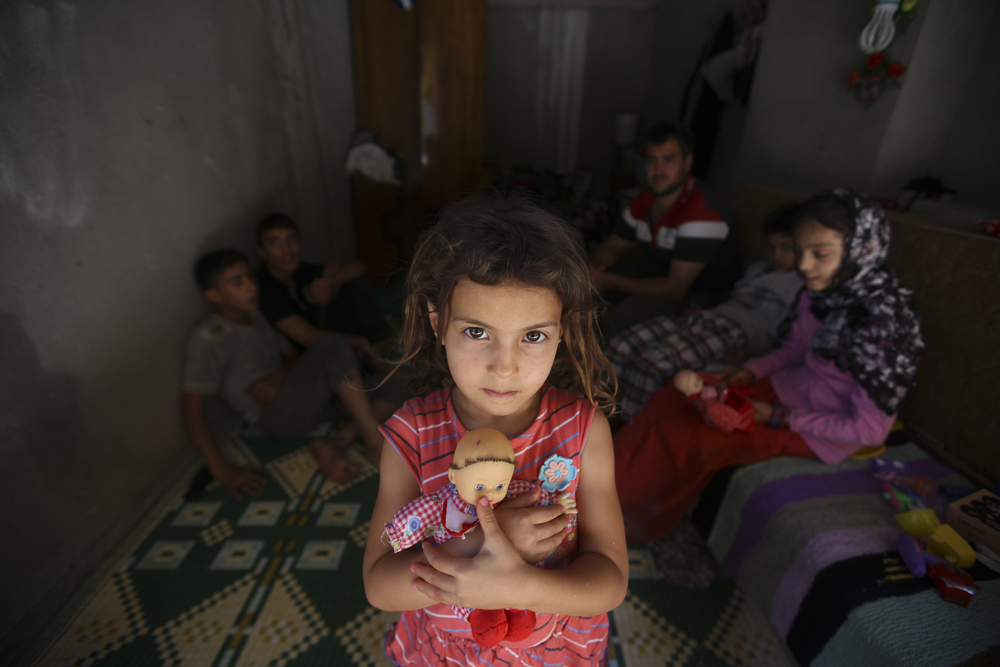
According to national statistics, absolute poverty is virtually non-existent in Turkey. However, many children continue to experience relative poverty. The people having incomes below a specified line compared to the general population are defined to be poor in a relative meaning. The at-risk-of-poverty rate according to the poverty threshold, 50 percent, of median equivalised household disposable income was 13.9 percent. This is a very crucial factor that needs to be solved to eradicate its impact on children’s quality of life.
Gender Inequality and Child Marriages
Gender inequality is a significant issue in the Turkish population. Gender inequality is more widespread in employment; however, there are many examples of it regarding children which impact them negatively. The most recent TurkStat data showed that 34 percent of young women were not in employment, education or training, compared to 14.6 percent of young men. Although net upper secondary enrolment rates were higher for girls than boys in many provinces, a gender gap in favour of boys continued in eastern and central areas. In some cases, girls may be given gender roles including responsibilities for housework and care of younger children from an early age. They may also face more restrictions than boys on their choices and participation in certain activities.
These expectations and restrictions result in many girls being pressurized to have children at a young age and be child brides. These instances generally occur in the most rural parts of Turkey which pose another threat since they are not as well audited as in other parts of Turkey.
Child Abuse
Mistreatment of Turkish children remains a problem; and it takes various forms: physical, psychological, and sexual. Sexual abuse towards children remains to be a threat to them. The number of child sexual abuse cases that Turkish courts have settled in the years from 2007 to 2017 has quadrupled, according to figures provided by the Justice Ministry.
Additionally, there are honour killings that aim to preserve family honour by punishing or even killing girls if they bring ‘shame’ to the families’ names. As the New York Times mentioned in May 2017, accurate and recent data about honor killings in Turkey are hard to come by, however, they have occurred in previous years.
To help with some of the effects of violence towards children, accompanied by their mothers, children receiving services from shelters are granted financial support, legal support, health services and psychological counselling. There is a hotline for children who are at risk of violence which is operated at any time. Furthermore, there are nearly 60 women’s counselling centers, which provide counselling and support for victims of abuse.
Child Labour
With the aid of an International Work Organization program aimed at abolishing child labour, Turkey has made much progress in this regard. It is estimated that 2.6 percent of Turkish children work.

Child labour is indeed prohibited by law in Turkey. Although there is child labour present in the country, the legal age to be able to work is 15 years. In order to protect the lives and health of these children, child labor needs to be eradicated. Those who work in repair shops, carpentry shops, or construction sites, breathe in dust, dirt, smoke, and any number of noxious chemicals. The consequences for their health are invariably bad and render them vulnerable to numerous maladies.
Child Trafficking
The sexual exploitation of children for commercial purposes remains prevalent in Turkey. The minimum age of consent is 15, meaning that anyone who has sexual relations with a girl below that age can be thrown into prison. However, certain young girls are forced by traffickers or by poverty to submit themselves to such exploitation.
Another cruel form of exploitation exists in Turkey. It involves the procurement and sale of human organs. Owing to the high monetary value placed on human organs, certain traffickers do not hesitate to seize children for the purpose of removing their organs and selling them to interested buyers. This is a great risk for children and is in great need of addressing to maintain the health and quality of life of children in Turkey.
Written by Yagmur Ozturk
Last updated on 2 February 2020
References:
Supply and Demand for Child Care Services in Turkey: A Mixed Methods Study. (n.d.).
Country Information and Guidance – Turkey: Women fearing gender-based violence. (2018, May).
OECD Reviews of Health Care Quality: Turkey 2014. (2014). OECD Reviews of Health Care Quality. doi: 10.1787/9789264202054-en
Cullu, F., & Vural, M. (2016). An Overview on Child Health Care in Turkey. The Journal of Pediatrics, 177. doi: 10.1016/j.jpeds.2016.04.057

